Orca Restor(y)ation - Blurring the Lines Between Art & Science (Orca and Salmon Co-Recovery)
Note: Photos of killer whales used in this post do not necessarily depict the Southern Residents. They are simply included for artistic purposes and because I did not get many Southern Resident photos this past season.
A few weeks ago, I was able to participate in a mind-shifting writing workshop focusing on the co-recovery of orca and salmon. This workshop was born from a collaboration between the Endangered Species Coalition and Creature Conserve – two amazing organizations that I’ll talk more about later – and was the second in a series of similar workshops on the theme of integrating science and art for conservation. When the invitation email popped up in my inbox, it was a no-brainer to accept.
Writing? Orcas? Salmon? Conservation? Creativity? Science? All combined? Absolutely.
I don’t know if anyone else can relate to this, but my emotions toward conservation – and the precarious relationship between humanity and nature – are constantly shifting between states of anger, disgust, confusion, helplessness, motivation, acceptance, and uncertainty. I’ve noticed that when I only rely on science to process information, the helplessness starts to heighten. Cold, hard facts are hard to digest. Scientists don’t sugarcoat things (and they shouldn’t). That doesn’t make it any easier to process. But when I introduce art into the equation – via my blog, photography, journaling – my nervous system calms down, I am more in tune with my emotions, and I finally start to process the information. It still hurts, but the burden becomes lighter when I share it.
For this reason, I was so excited to dive deeper into the blend of art and science and participate in guided writing exercises led by author Miranda Mellis. The four-hour event was held via Zoom, of course, and it was nice to see a diverse group of folks attending from various spots around the Pacific Northwest. We heard from NOAA fish biologist Laura Koehn, the Orca Network Education Coordinator Cindy Hansen, and Sandra Pollard, the author of two books on orca hunting and captivity.
The focus of the workshop was on active listening and processing, not so much on remembering facts and little details. We were encouraged to pay attention to certain words or concepts that stood out to us and how they made us feel. I’ll admit that I often downplay my feelings when my inner critic says “You don’t even live in the San Juans full time…what right do you have to write on this topic?” or “There are a million other people more knowledgable than you in this area” or “Nobody cares that you’re sad about orcas dying, Lauren…the orcas are the ones that are dying.”
Why do we do this to ourselves? Every single being on this planet has a right to feel. Even more than a right, actually – we have a responsibility. If we aren’t going to process our own feelings, nobody will. They’re just going to float inside of our bellies, making us angry and anxious and confused. And the beauty of processing our feelings is that we might help somebody else do the same along the way.
That’s always been one of my main goals with my writing.
From a scientific perspective, it was interesting to learn more about salmon recovery. I particularly enjoyed the NOAA presentation; Laura spoke with clarity about NOAA’s various salmon relief efforts. I’ve always felt a fascination with these remarkable fish but have often put them on my mental backburner, spending more energy talking and thinking about marine mammals. Whales and dolphins play such a powerful role in galvanizing people to action in the conservation realm, but without recognizing the species that allow our marine megafauna to thrive, we’re simply not doing the ecosystem any justice.
Cindy Hansen from Orca Network was able to add wonderful tidbits of information to my mental catalog of killer whale knowledge. I was also fascinated (and disturbed) by Sandra Pollard’s discussion of the orca capture period during the 1960s and 1970s. This Cornwall-born naturalist has written two eye-opening books on this topic, and it’s something that I don’t think many members of the general public think about when they consider Southern Resident population status. These whales lost about a third of their population during that horrific period. Now, decades later, their gene pool is significantly reduced and it’s becoming harder to fight off the hunger and infections that are plaguing these animals. I linked the books below if you’re interested in learning more.
I do earn a small amount from purchases made through the links above. By shopping at Bookshop.org, you’re supporting small book shops – can we all agree we want these to stay around?
Again, it’s not particularly fun information. It’s terrifying. But the whole point of creating art in this area is to learn, to feel, and to express. I think too many of us forget the “express” part. Bottling emotions up is so toxic. If you’re sad, angry, frustrated…TALK about it. PAINT it. WRITE it. MEDITATE on it. At the very least, acknowledge it.
For reference, here are some websites to check out the main threats to Southern Resident killer whales:
Orca Relief Citizens’ Alliance
The three main identified threats for these whales are 1) prey availability 2) PCBs and other persistent organic pollutants and 3) vessel impacts. I won’t go into much detail on these here, but I did write a blog post on this topic a few years ago.
Below, I’ve included some of my musings and the results of a few writing exercises that we worked on during the workshop.
Writing Exercises - Reflections on a Struggling Orca Population
We humans need to be more receptive to dialects that are different from our own. Think of the different orca populations that each have dialects all their own. The Southern Residents are chatty in their own way – witty and loud and playful – but without the salmon they need to thrive, the waters of the Salish Sea are quiet. The hydrophone at Lime Kiln picks up the soft swish of seals swimming through the water, the clicks of porpoises, the whoosh of cormorants diving for their prey…and yet in the silent background there is the memory of an orca calling out to its family.
Maybe this is the last Southern Resident. Will we remember? Are we listening? Beneath the silence we can hear the muffled sobbing of a population left to die right in front of the very people that cherish them so. In the meantime, it is people dressed in suits, chatting away in faraway offices, who profit from the destructive practices that they must know are destroying their home. Where is that going to get us? What voice does money have in the long run?
/family/
A mom, a grandma, with quiet and ancient wisdom she shares the secrets, traditions, skills needed for her family to thrive. The young…they listen. They play, they learn, no shortage of mischief, but they know to yield to the humble knowledge of the matriarch. Mom. Daughter. Son. A unit for life. These family ties cannot be broken.
/pod fractioning/
The family, once large and grand, grows smaller. The ache in their bellies drive the extended reunions to an end. With less time for socializing and community feasting, there is instead a focus on simply surviving. A stomach growls. An orca whistles for her cousin…but she is not there. Instead, mother, brother by her side. At least they have each other.
/superpod/
A party unlike any soiree you’ve ever been to. There are no discoballs here, no glitter or confetti, no costumes to hide under…instead, there is a cacophony of calls, clicks, whistles, splashes and spyhops and tailslaps. This is a gorgeous, pure joy to simply be in the company of those you love. A reunion.
/resident/
“Why are they called resident? Do they live here?” The question persists from curious whale watch guests. As the guide, I understand that to make them understand is to make them feel a pain…a pain I cannot internalize if I am to communicate the science well. “Well, it once seemed that way. They used to be around the Salish Sea most of the time. Now, these random visits are all we see. A few times a summer.” Nomadic. Searching. Always hungry.
/priority populations/
I am hungry. I am a young orca. My favorite salmon hunting spots are quiet. The salmon that I can find are small. What will I eat? I want to know when these “priority salmon populations” will be healed. My belly is empty; it hurts. Do you see this? Do you see how I am starving?
—
As always, thanks for reading my sweet TGB friends! There will be many more posts to come soon as I ramp up my blogging. The inspiration is back, the air is sweet and warm, and my emotions are flowing. A big thank you to Create Conserve for sponsoring me to complete the workshop - I can’t wait to be back for more!
xx
Lozza
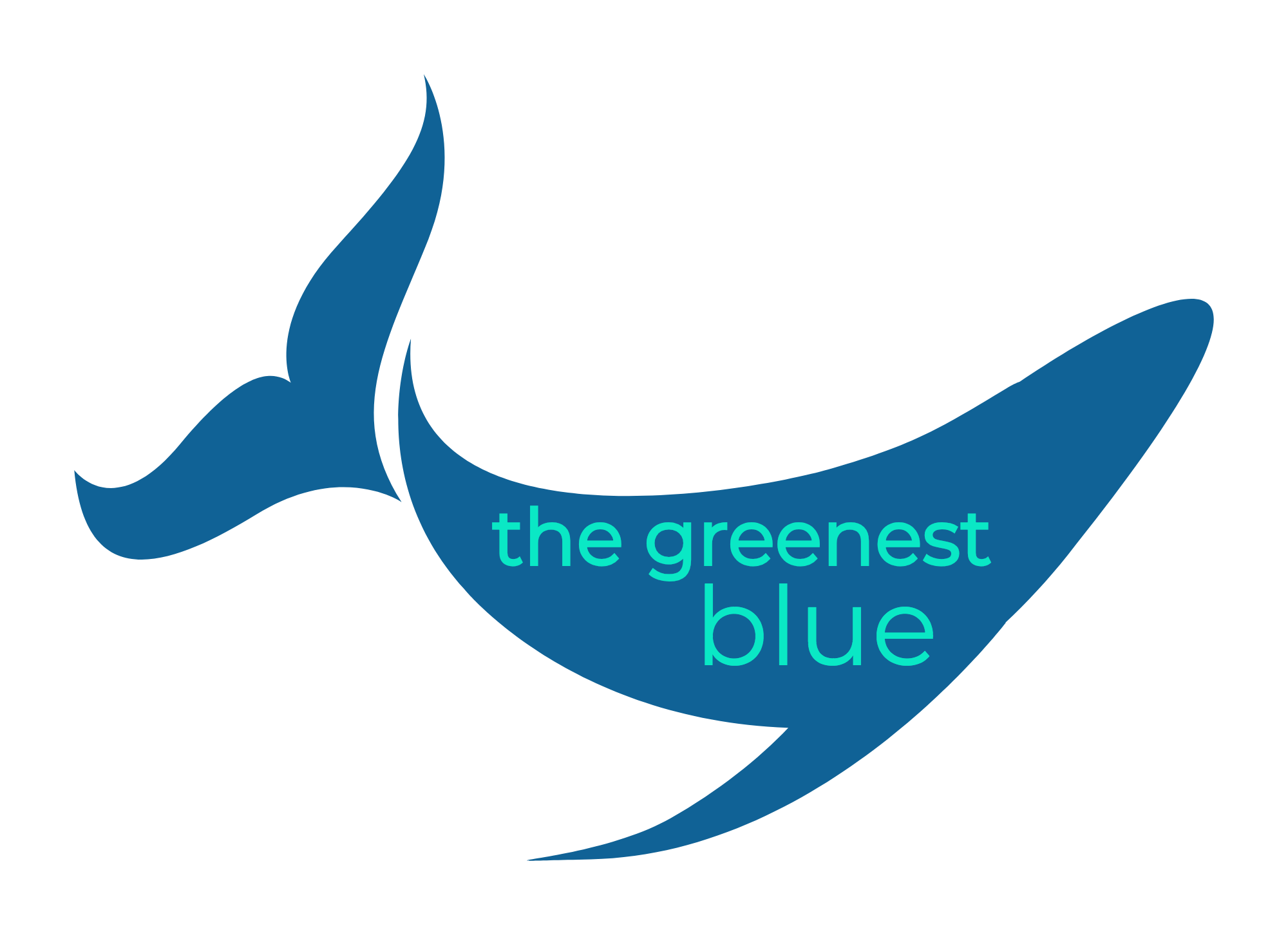
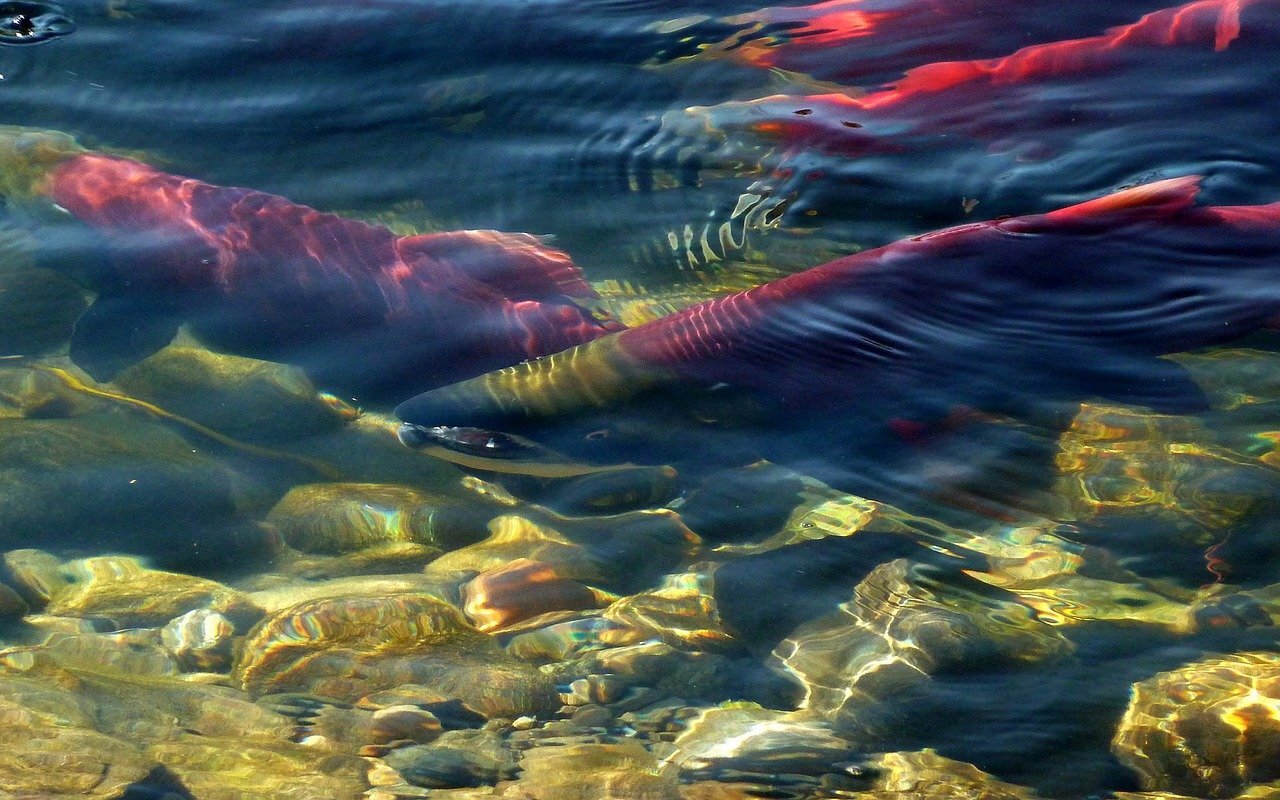
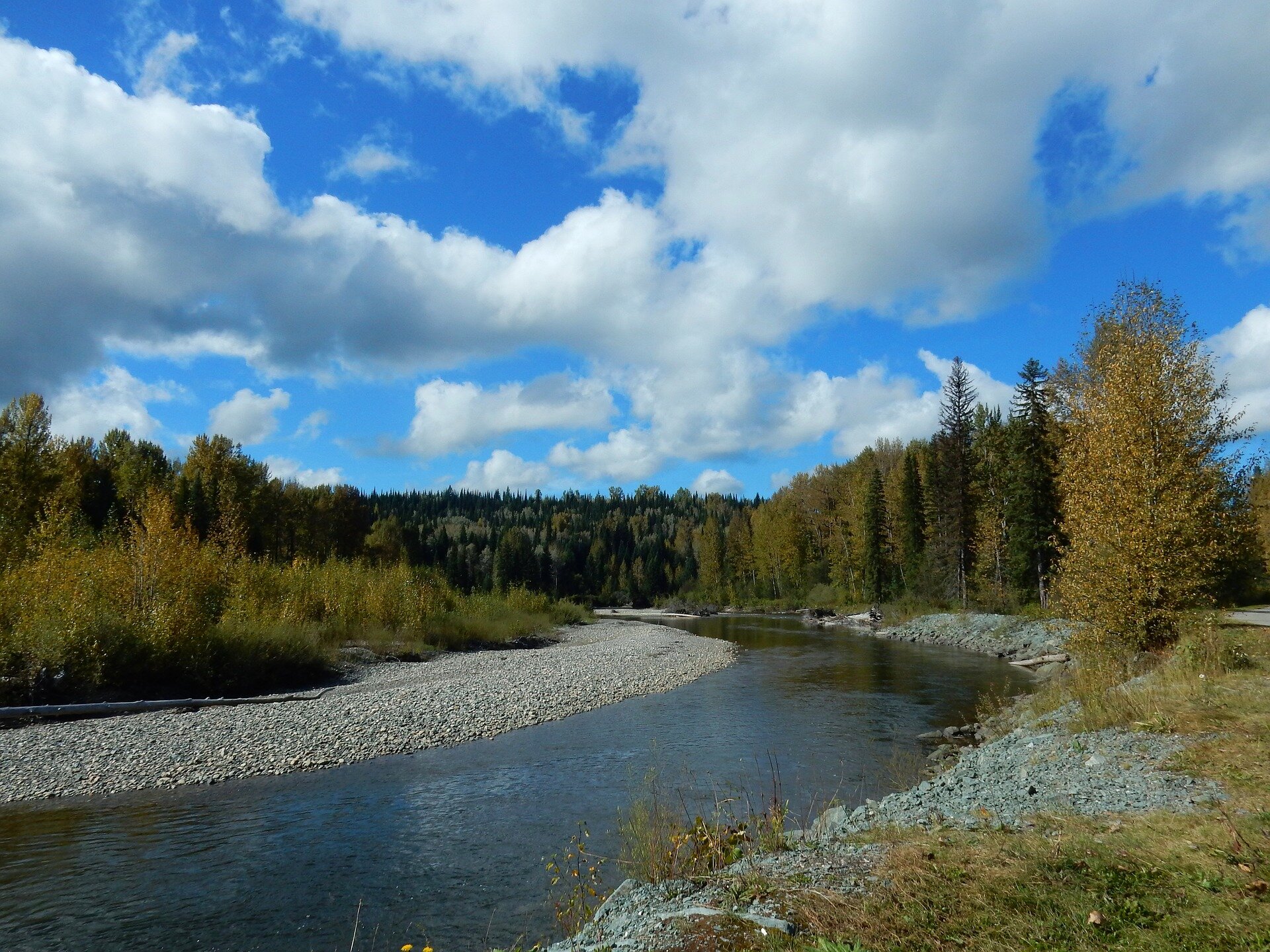
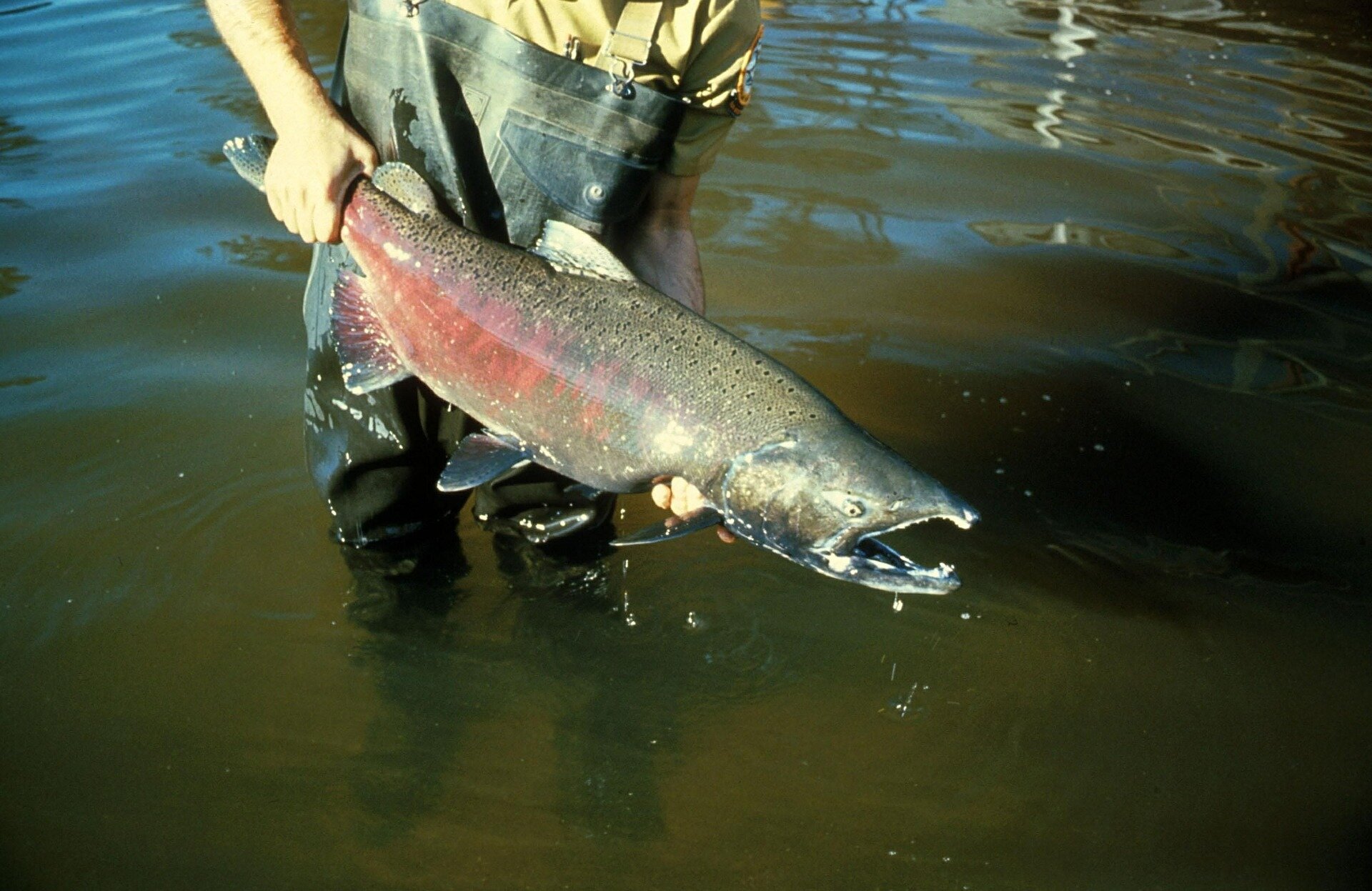



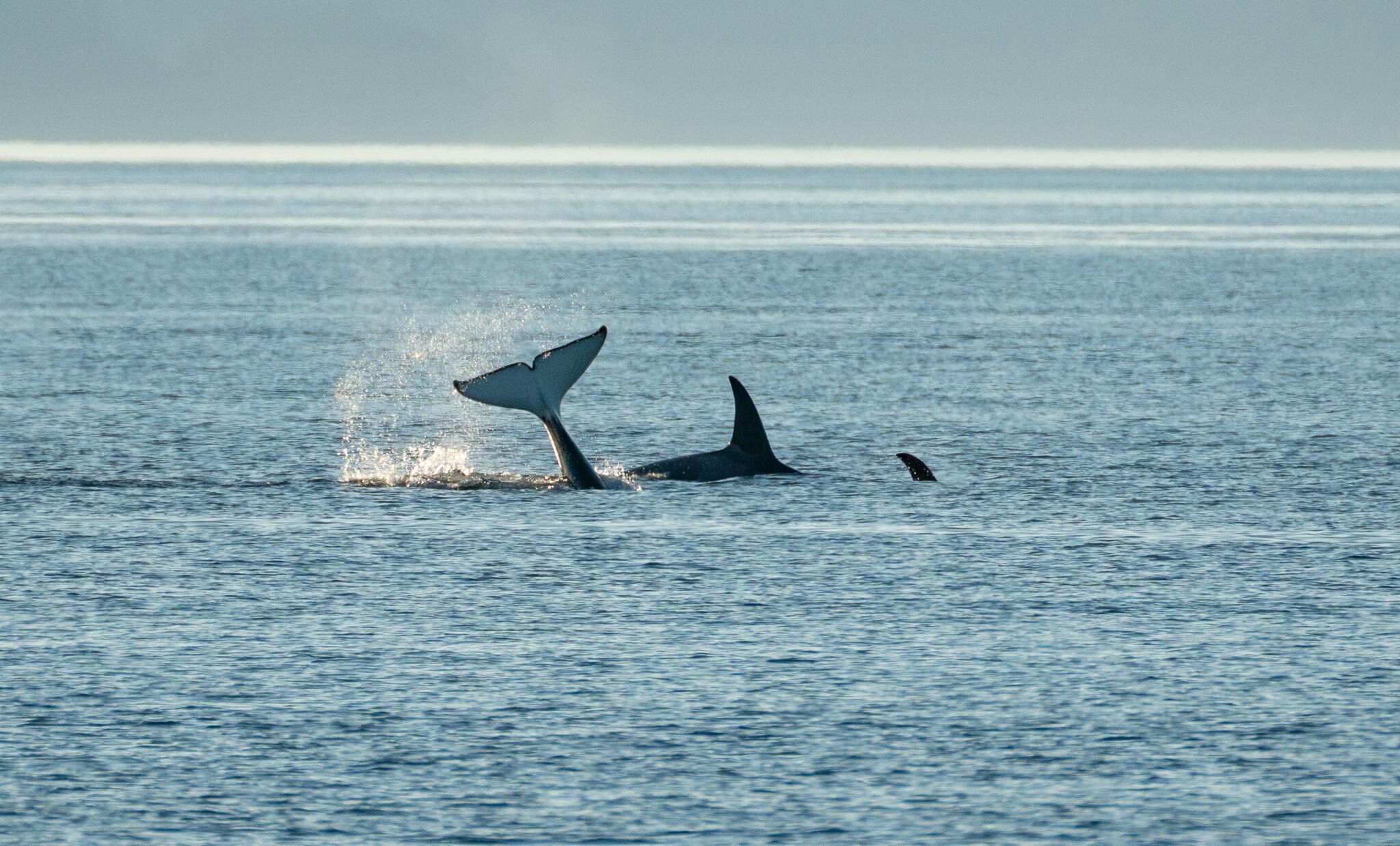
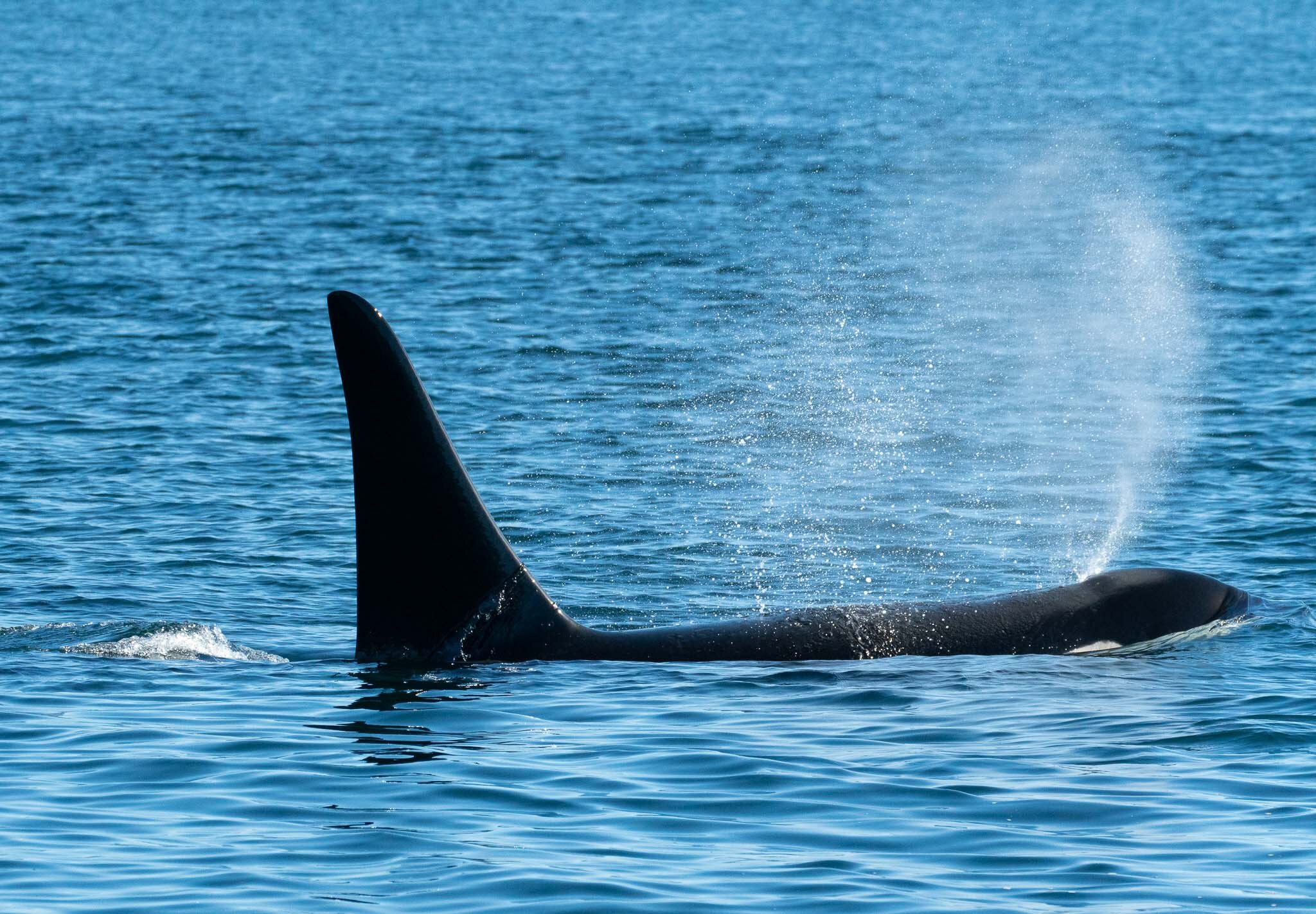
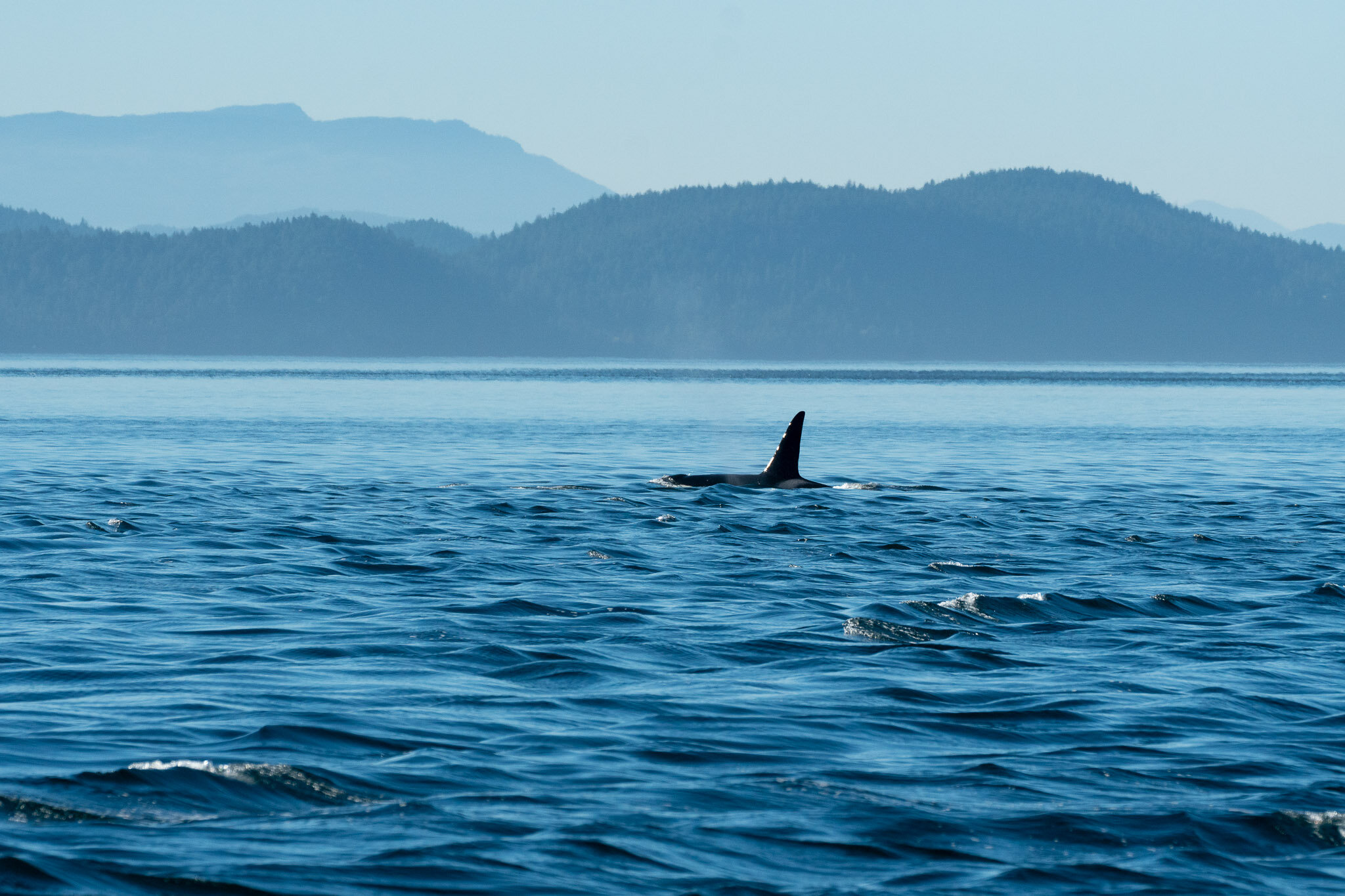


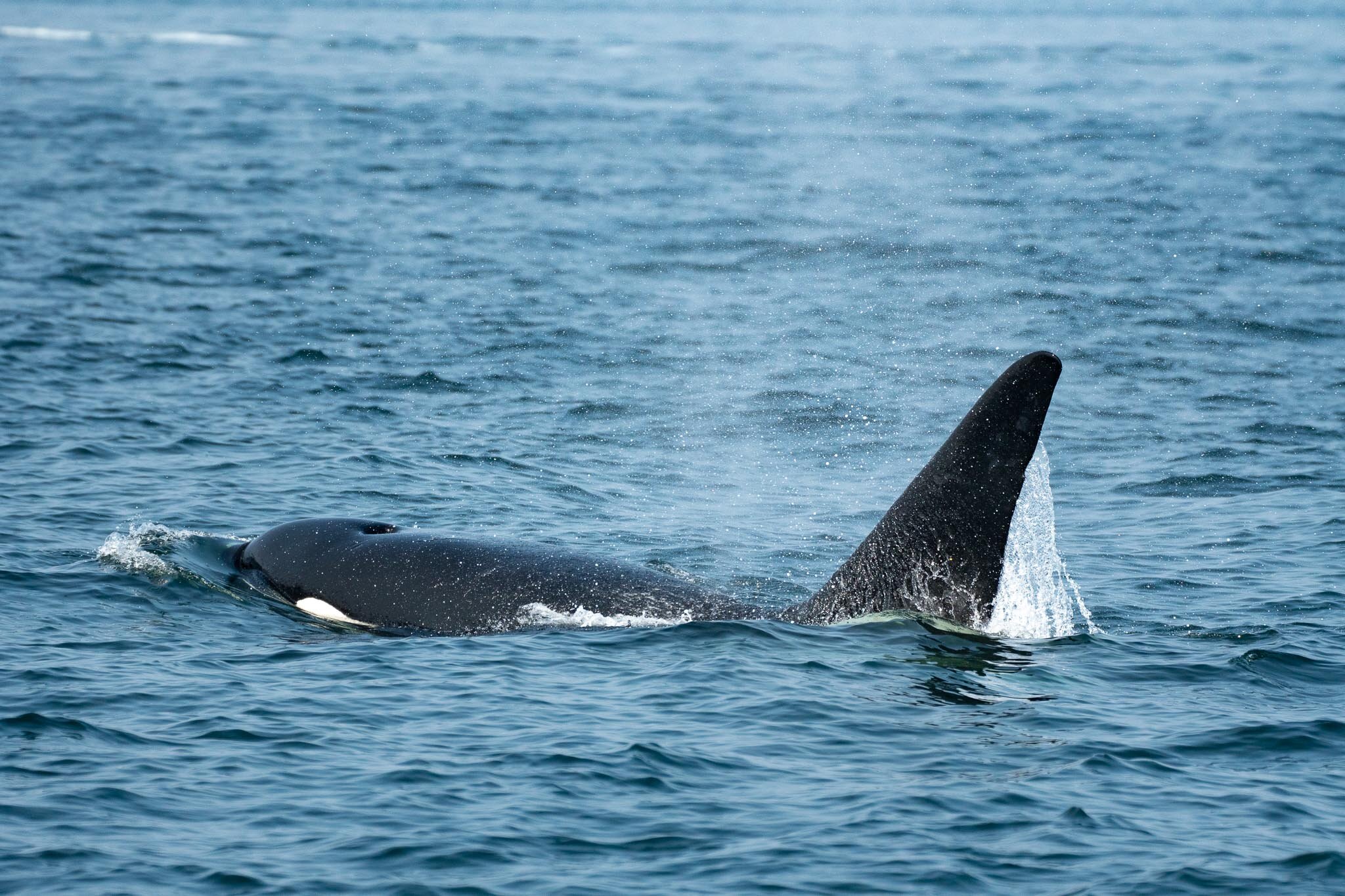
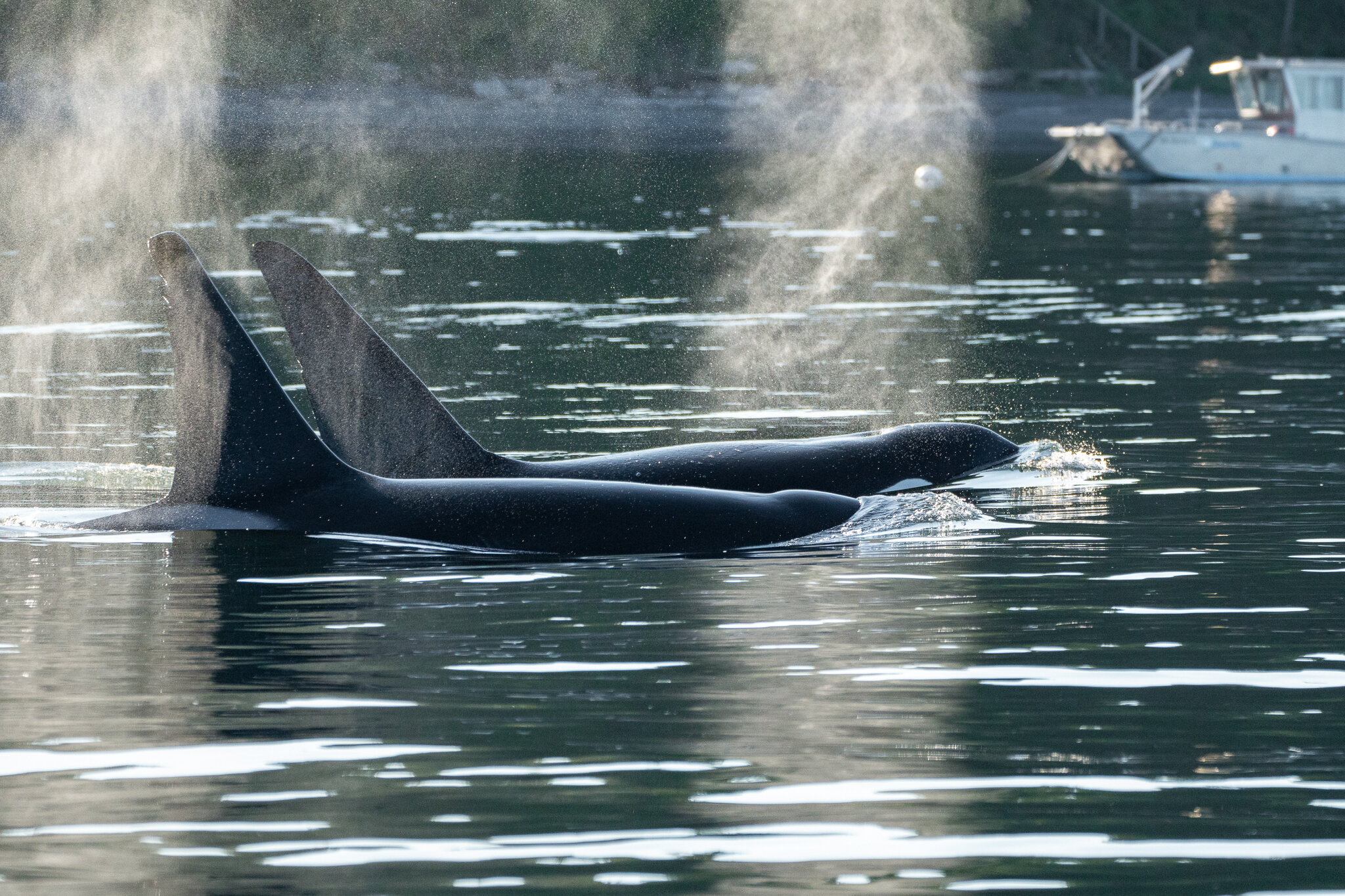
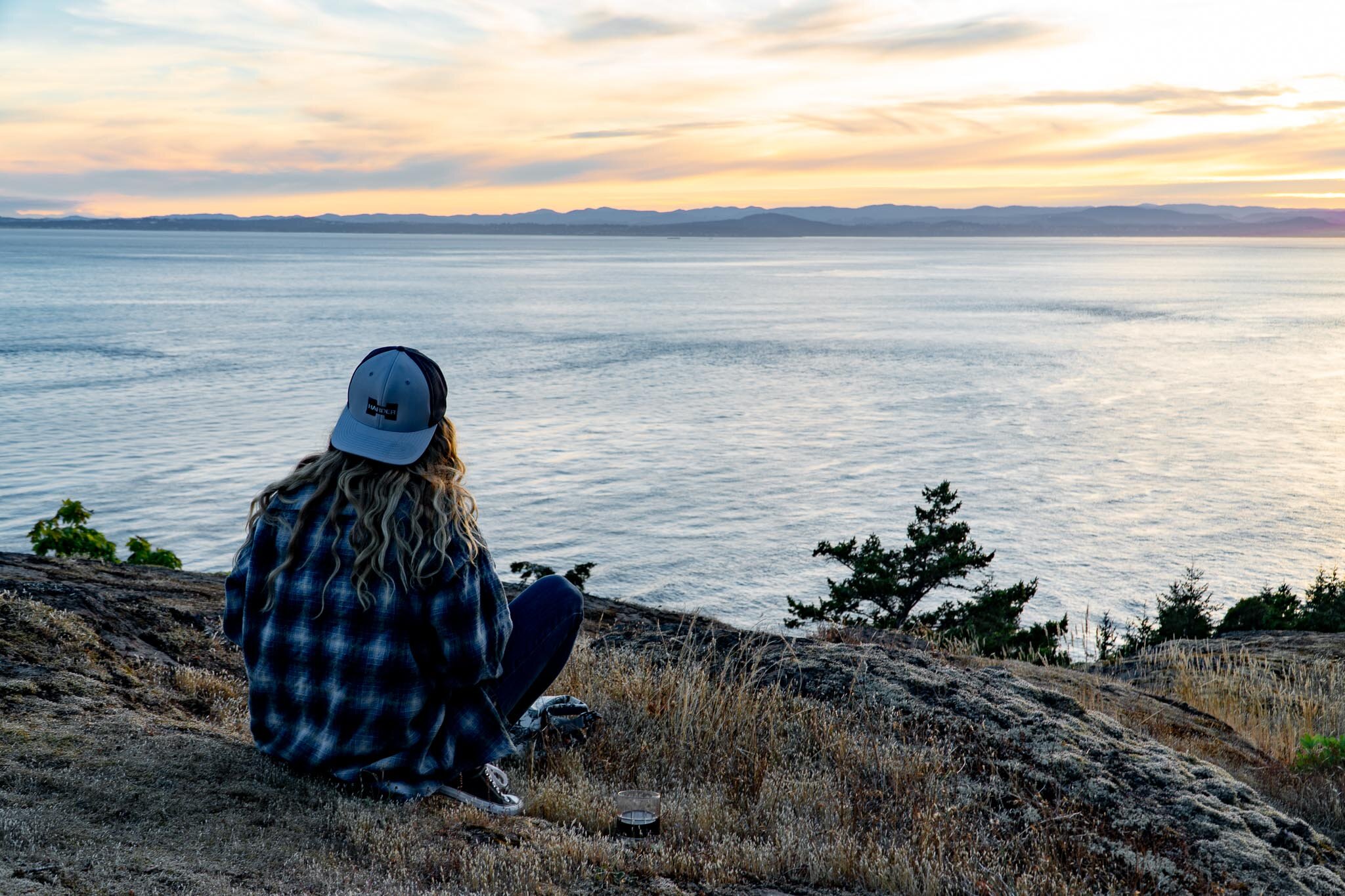
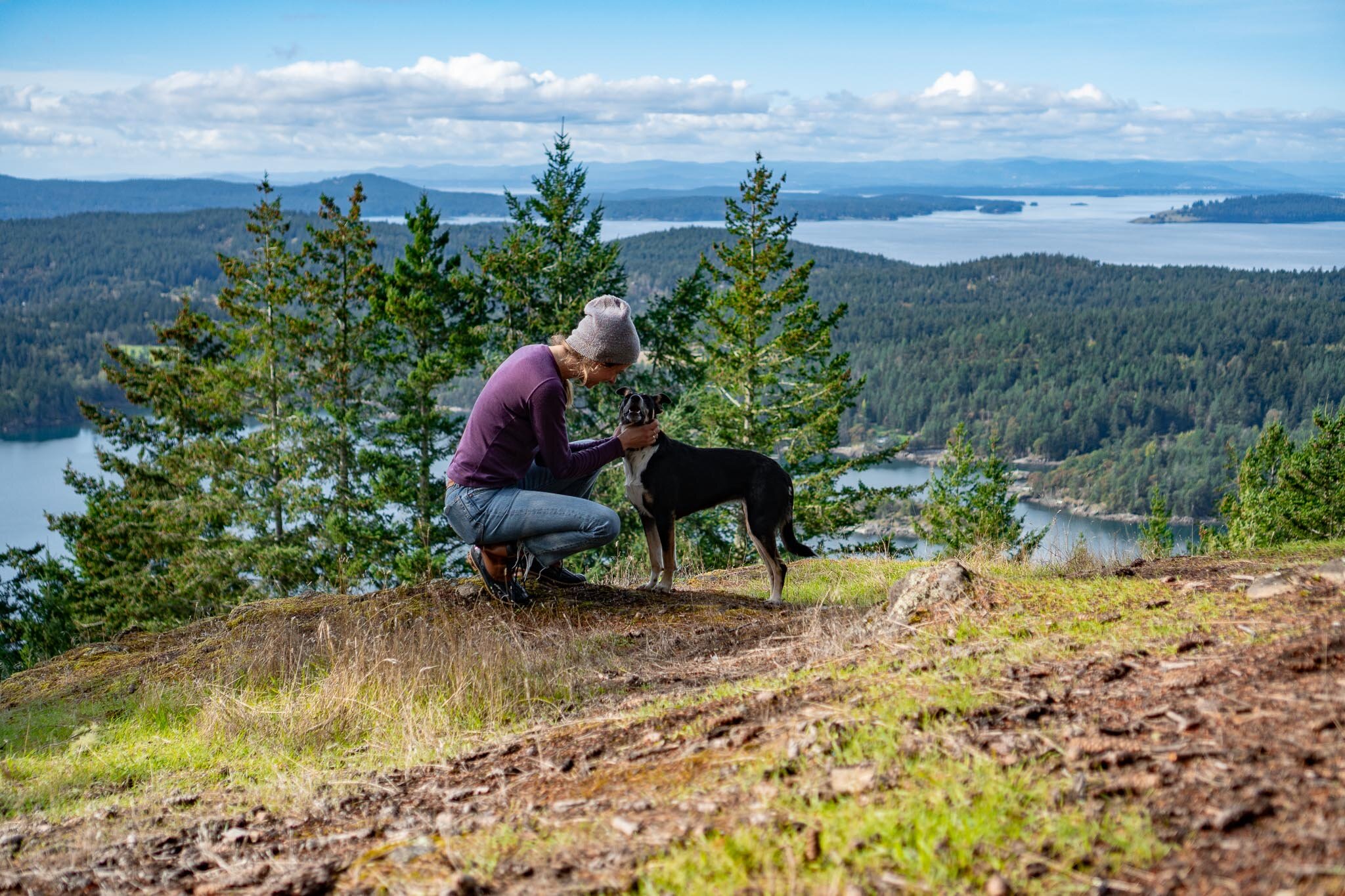
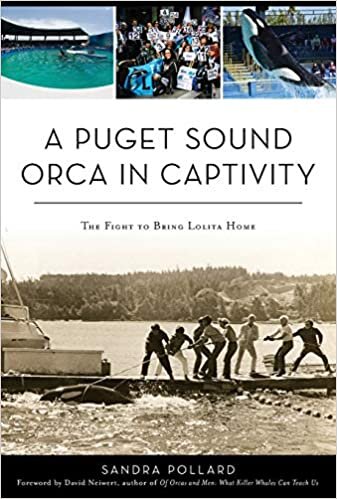
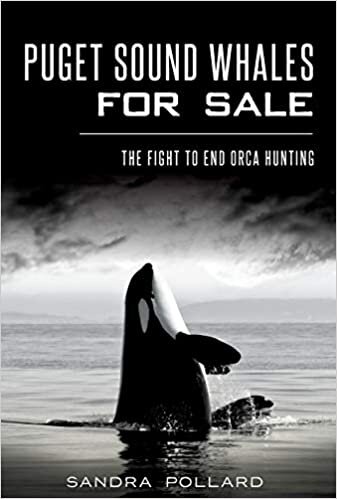
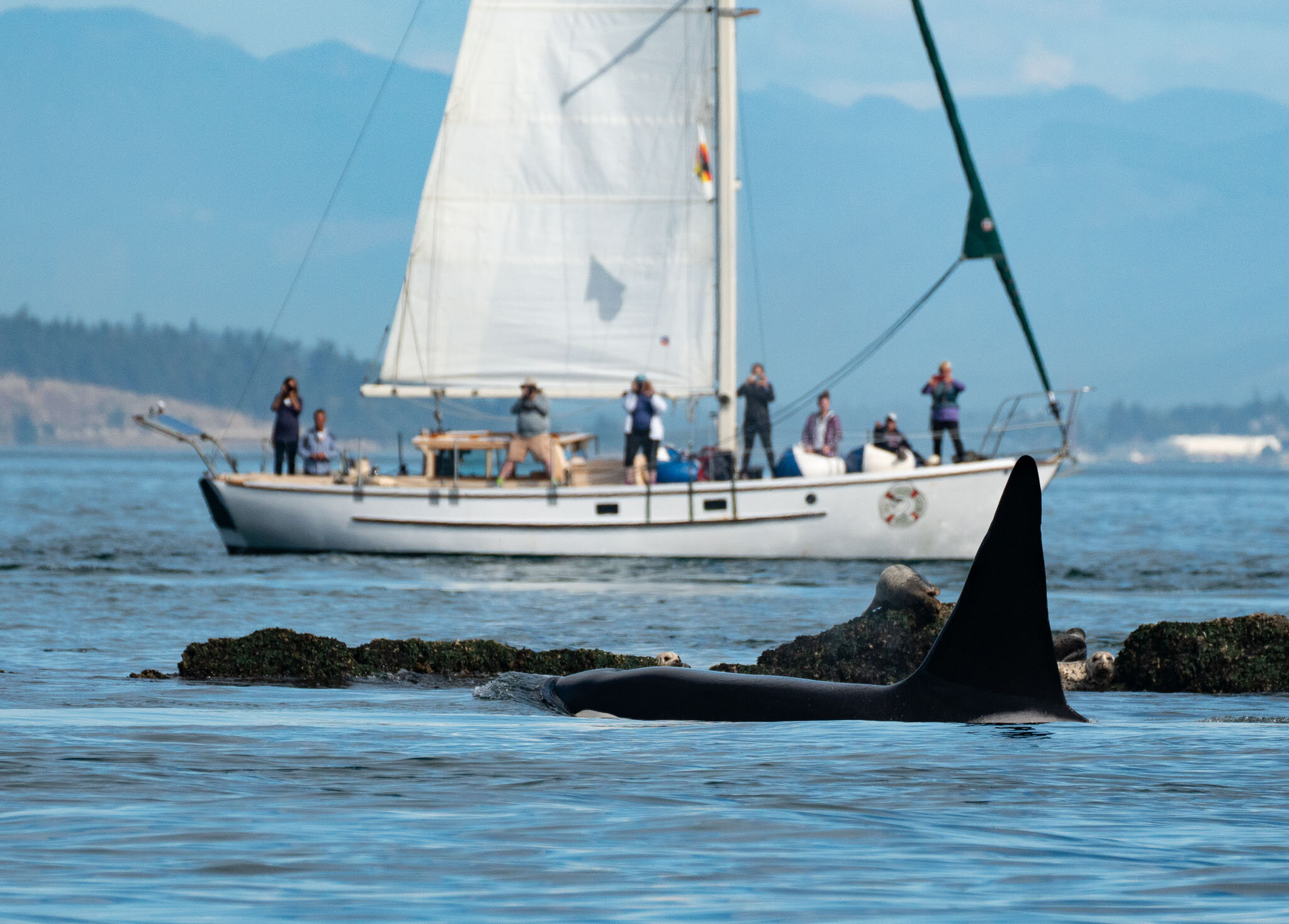
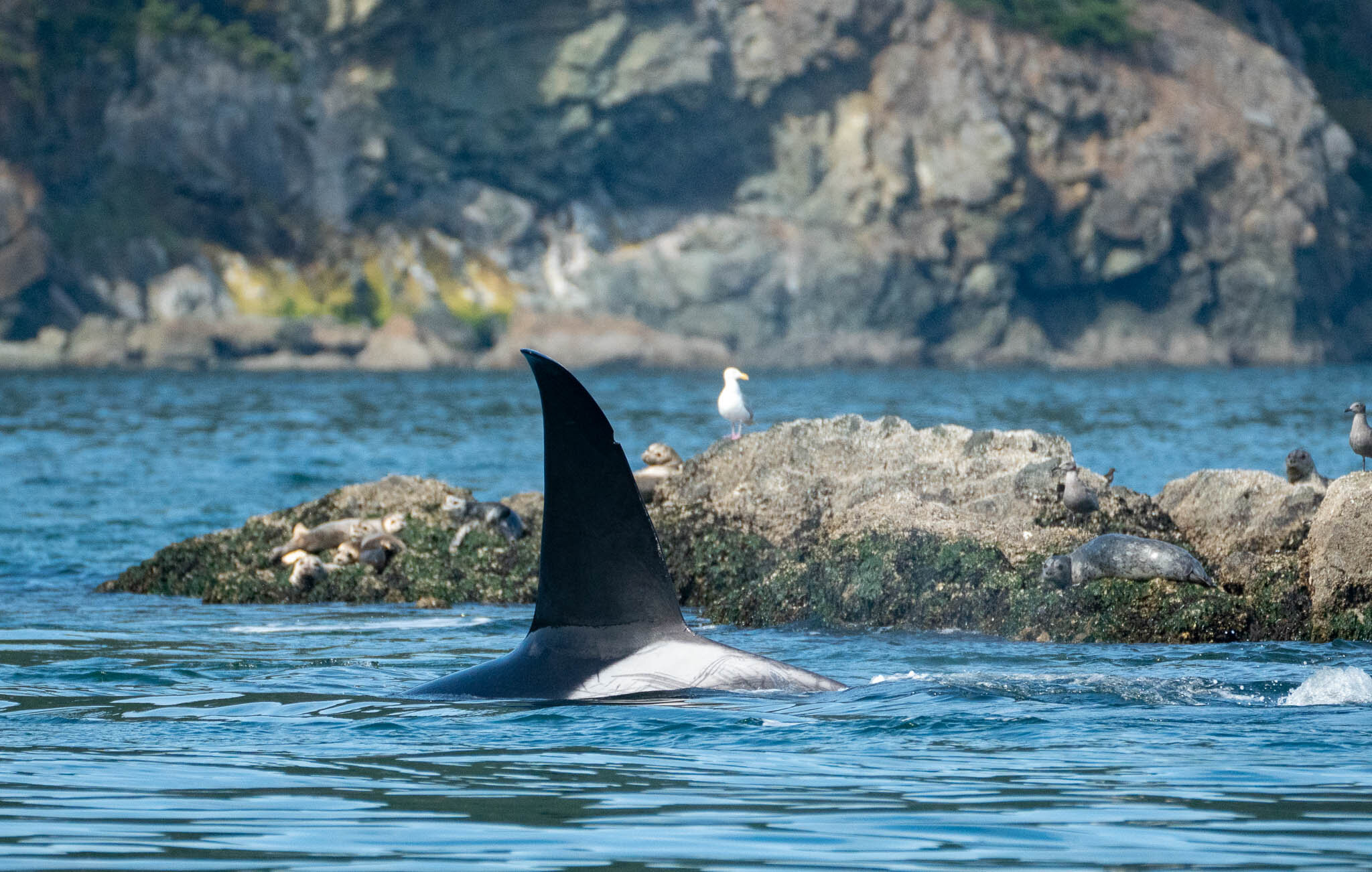
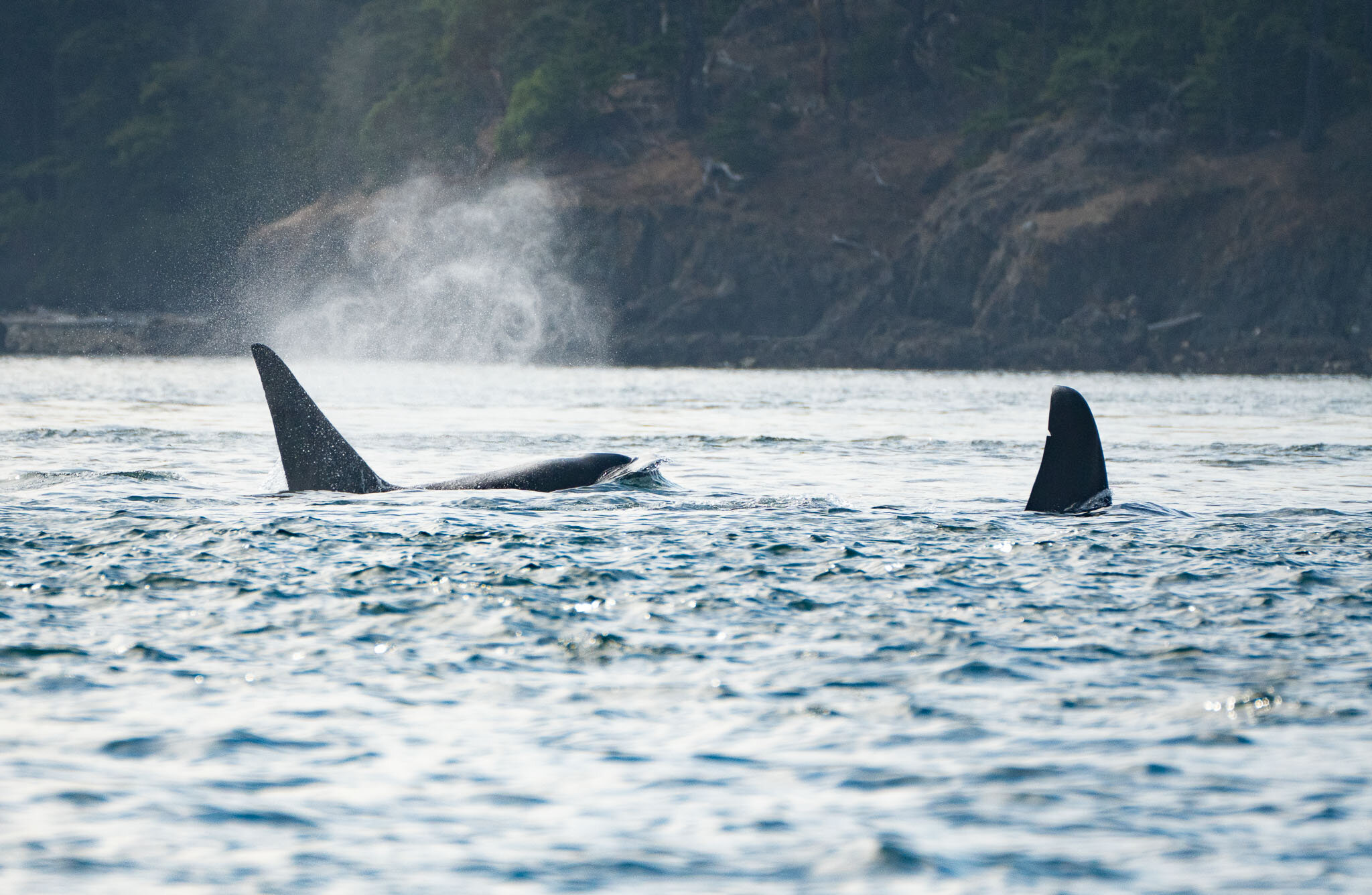
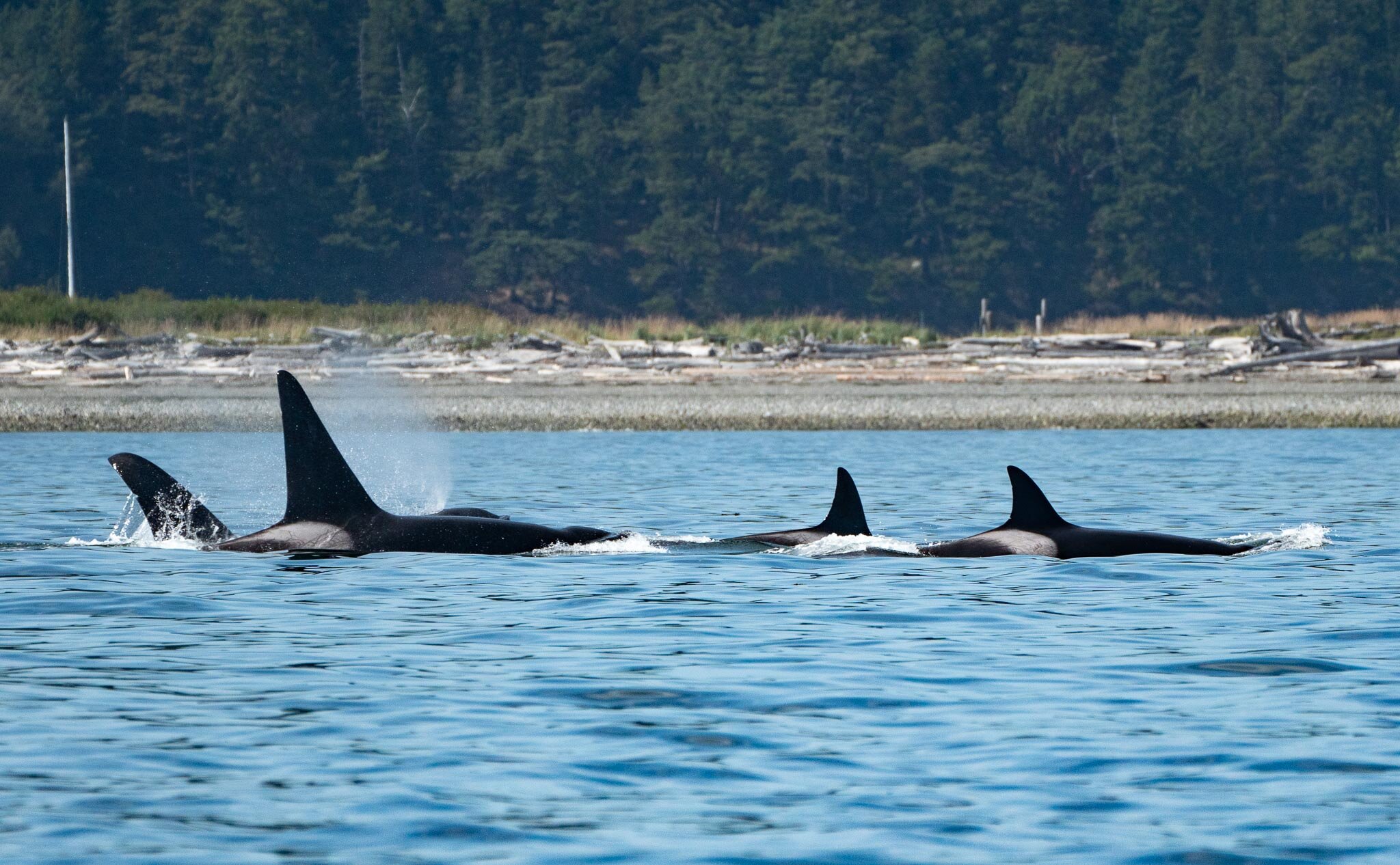
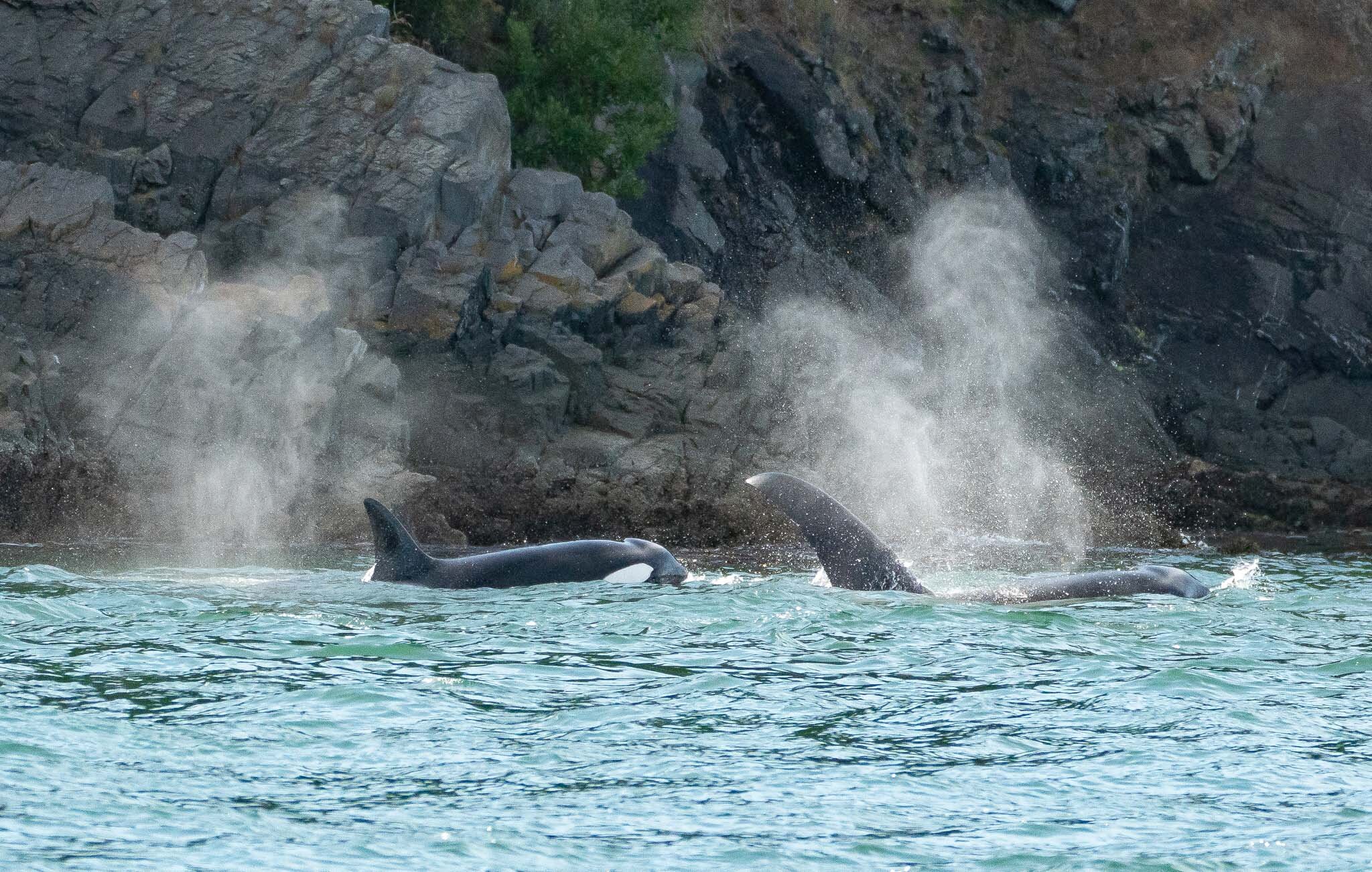
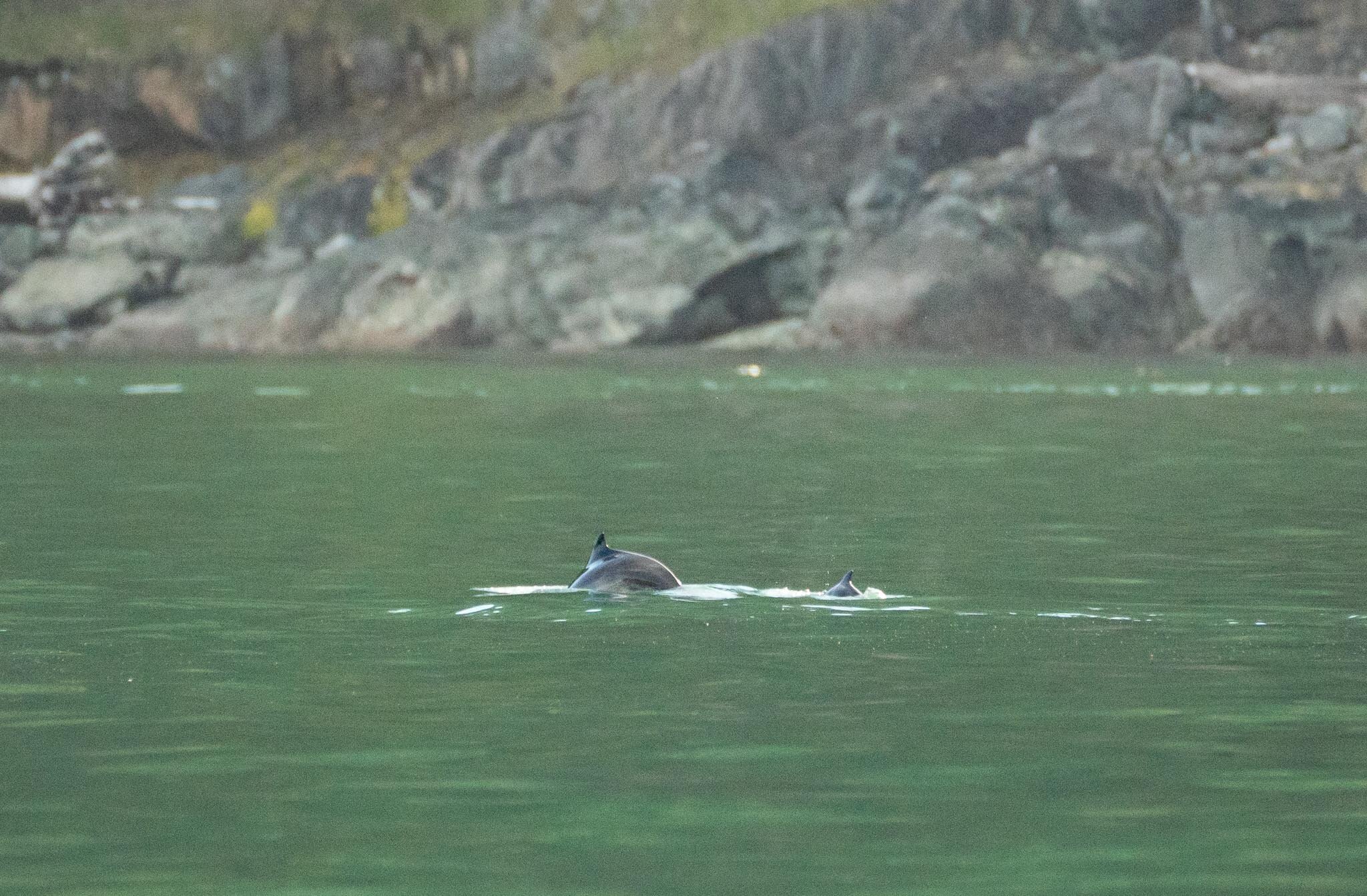

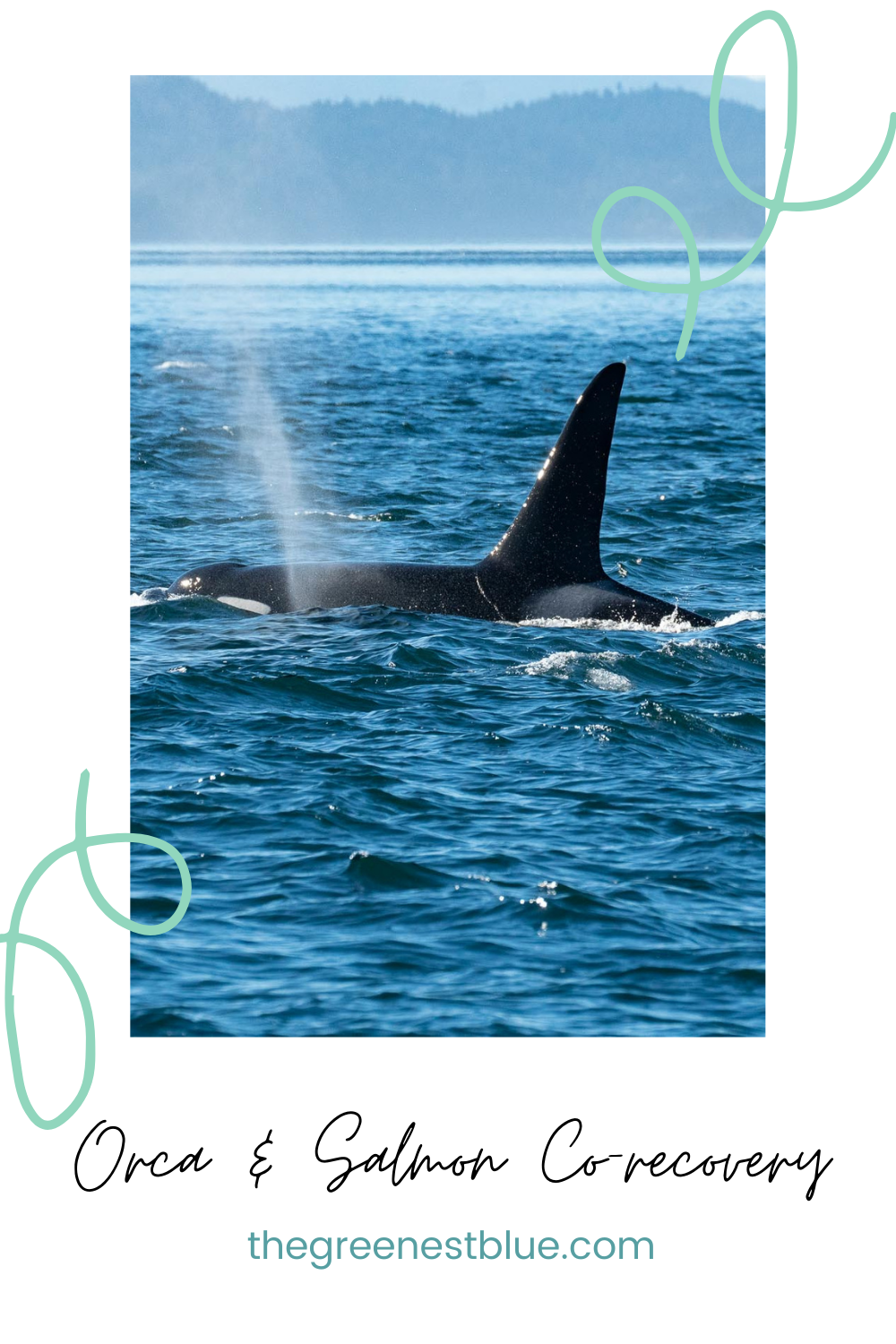
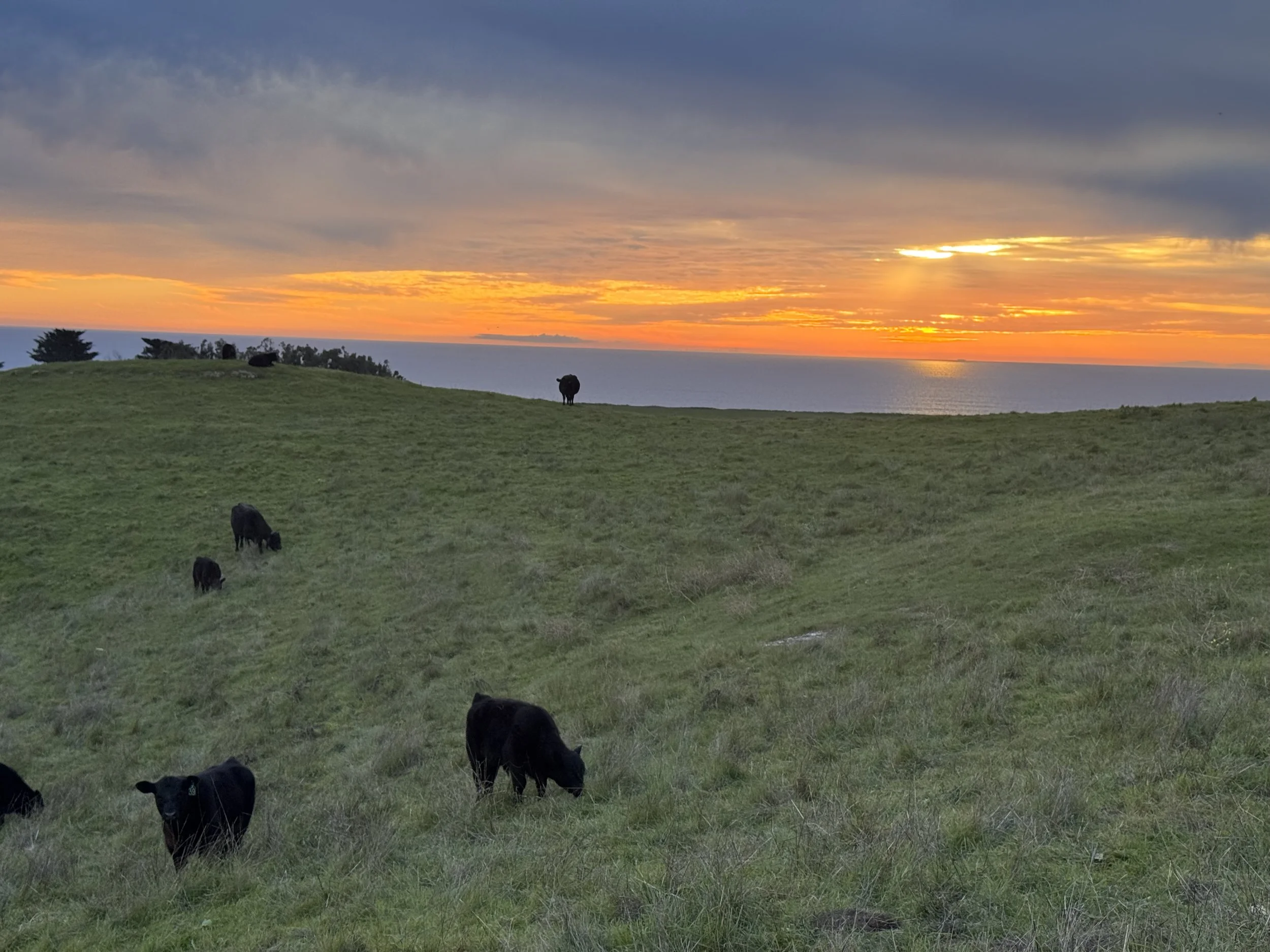


For now, I want to share this particularly special experience that is unfolding, right now. I’m on a ship in the Antarctic, specifically the Antarctic Sound on the northeast side of the Western Antarctic Peninsula, with a group of 120 women and non-binary people in STEMM. It’s facilitated by Homeward Bound. Read more here: it’s late, and this girl needs to get to bed.
But I wanted to start a log of our experiences each day, and I need to get caught up before time flashes by and I’m disembarking in Ushuaia in two weeks. Updates will be mostly through photos, as that is the energy level I’m working with currently.
Kinnes Cove
Home to a bustling Adelie penguin colony, with some Gentoos and a random Chinstrap or three thrown into the fray. We saw a sleepy, chunky Weddell seal hauled out on the shoreline, and a few lazy humpbacks cruised past our zodiacs on their way to redder pastures (because of krill, duh).